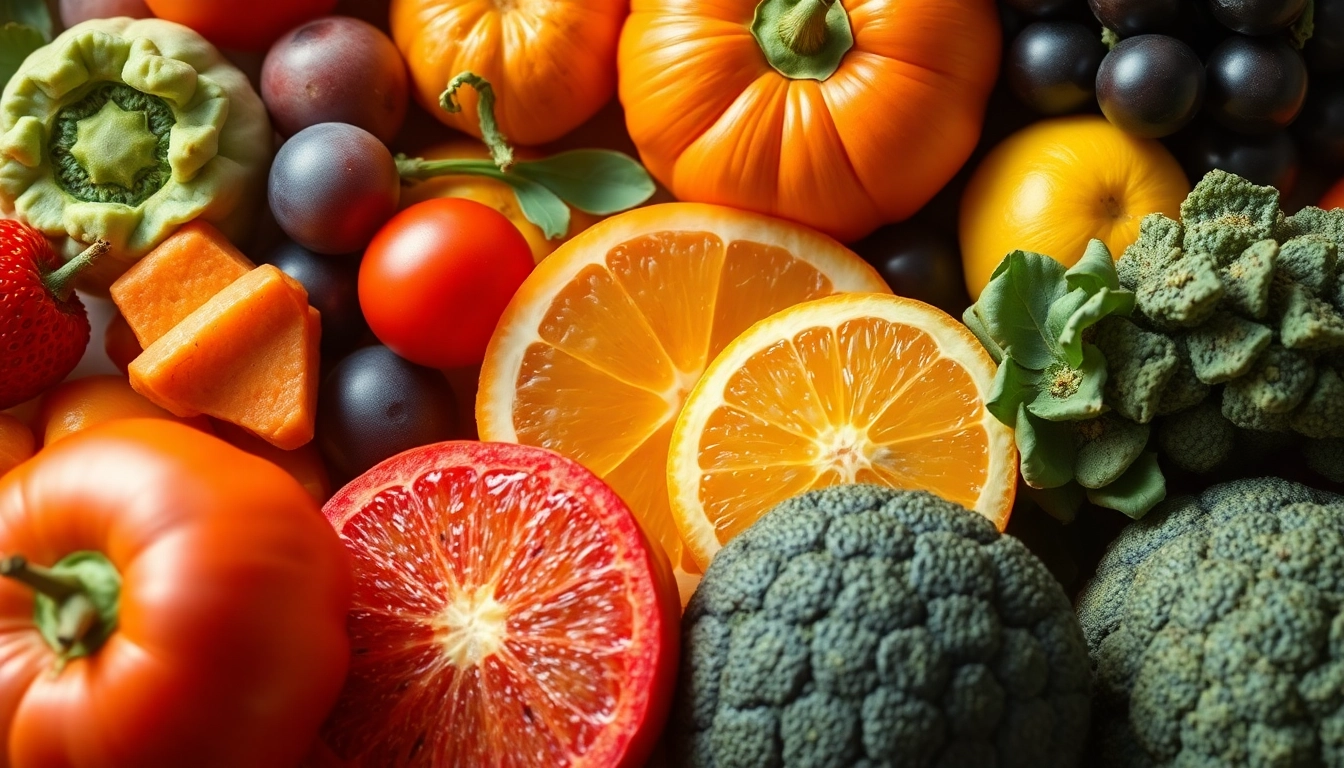
Understanding Antioxidants
What They Are and How They Work
Antioxidants are vital compounds that protect our bodies from the damaging effects of oxidation, a natural process that occurs when our cells use oxygen. When our body metabolizes oxygen, it generates unstable molecules known as free radicals. These free radicals can cause oxidative stress, leading to cellular damage, chronic diseases, and aging. Essentially, antioxidants work by scavenging these harmful free radicals, neutralizing them, and preventing or repairing the damage they can cause. The most common antioxidants include vitamins like C and E, minerals such as selenium, and various plant compounds. Adding antioxidants into our diet is crucial for maintaining overall health.
Key Sources of Antioxidants in Your Diet
Antioxidants are predominantly found in a variety of foods, particularly fruits and vegetables. Specifically, the brightest and most colorful foods tend to contain higher levels of antioxidants. For instance, berries such as blueberries and strawberries are rich in vitamin C and flavonoids. Other significant sources include:
- Green leafy vegetables: Spinach, kale, and broccoli are packed with vitamins A, C, and E.
- Nuts and seeds: Almonds, walnuts, and flaxseeds provide essential fatty acids and vitamin E.
- Spices and herbs: Turmeric, cloves, and cinnamon have been shown to possess powerful antioxidant properties.
- Whole grains: Whole wheat, oats, and brown rice also contribute to antioxidant intake.
Including a varied diet rich in these foods ensures a robust intake of antioxidants, which helps bolster our body’s defense system.
The Role of Antioxidants in Fighting Free Radicals
The primary role of antioxidants is to neutralize free radicals, which can harm cellular structures like DNA, proteins, and lipid membranes. This protective mechanism is crucial because excessive free radicals may contribute to various diseases, including cancer, heart disease, and neurodegenerative disorders. Research has shown that antioxidants can modulate cell signaling pathways, thereby playing a role in regulating inflammation and immune responses. This makes them powerful allies in maintaining cellular integrity and promoting longevity.
Benefits of Antioxidants
How Antioxidants Support Immune Function
Antioxidants have a significant impact on immune system function. They help boost the activity of immune cells by combating oxidative stress, which can impair the immune response. For example, vitamin C, a renowned antioxidant, is vital for the growth and function of immune cells. It also enhances the skin’s barrier function, providing the first line of defense against pathogens. Studies indicate that a diet rich in antioxidants may help reduce the incidence of upper respiratory infections and improve overall immune health.
Antioxidants and Their Role in Disease Prevention
The protective role of antioxidants is extensive and documented across numerous studies. Regular consumption of antioxidant-rich foods has been linked to a lower risk of chronic diseases. For instance, evidence suggests that diets high in fruits, vegetables, and whole grains can reduce the risk of cardiovascular diseases. Similarly, antioxidants like beta-carotene and lycopene, found in tomatoes and carrots, may lower cancer risk. Moreover, antioxidants are also believed to play a role in preventing age-related macular degeneration, a leading cause of blindness in older adults.
Effects of Antioxidants on Aging
Aging is associated with an increase in oxidative stress due to the accumulation of free radical damage over time. Antioxidants can help mitigate these effects. Nutrients like vitamin E help protect cell membranes from oxidative damage. Many studies suggest that antioxidants contribute to improved skin health, reducing the appearance of fine lines and wrinkles. They also play a role in cognitive health, with some research indicating a potential protective effect against Alzheimer’s disease and other forms of dementia by reducing oxidative stress in neuronal cells.
Incorporating Antioxidants into Your Lifestyle
Easy Ways to Add Antioxidants to Your Meals
Incorporating antioxidants into your diet doesn’t have to be complicated. Here are practical tips to boost your intake:
- Start your day with berries: Add fresh or frozen berries to your breakfast, whether in smoothies, oatmeal, or yogurt.
- Snack on nuts: Replace chips with a handful of nuts filled with vitamin E and healthy fats.
- Add greens to your meals: Include dark leafy greens in salads, soups, or stir-fries.
- Spice it up: Use herbs and spices like turmeric and cinnamon to flavor your dishes while providing additional antioxidants.
- Choose whole grains: Opt for brown rice, quinoa, and whole-wheat products for their antioxidant content.
Popular Antioxidant Supplements: Do They Work?
While obtaining antioxidants from food is ideal, many people consider supplements for added benefits. Common antioxidant supplements include vitamin C, vitamin E, and beta-carotene. However, there’s ongoing debate regarding their efficacy. Some studies suggest that antioxidants in supplement form may not provide the same health benefits as those found in whole foods and may even increase the risk of certain health issues when taken in high doses. Therefore, focusing on a nutrient-dense diet rich in natural antioxidants remains the best recommendation for health enhancement.
Combining Foods for Maximum Antioxidant Impact
Strategically combining foods can maximize antioxidant absorption and effectiveness. For example, pairing vitamin C-rich foods with iron sources, such as leafy greens and beans, enhances iron absorption. Another example is combining fatty foods with antioxidant-rich fruits like avocados and nuts, which help dissolve fat-soluble vitamins like A, D, E, and K. Additionally, cooking methods such as steaming and sautéing can help preserve the antioxidant content of foods while making them more palatable.
Potential Risks and Misconceptions
Are Antioxidant Supplements Safe?
While many people consider antioxidant supplements to boost health, there are potential risks that come with their use, particularly when consumed in excessive amounts. High doses of certain antioxidants can lead to health complications, such as gastrointestinal issues or increased risk of bleeding. Moreover, some studies have indicated that taking high doses of specific antioxidant supplements can interfere with the body’s natural oxidative stress response and potentially counteract some cancer treatments. Hence, it is always advisable to consult a healthcare professional before starting any supplement regimen.
Common Myths About Antioxidants
Several myths surround antioxidants that can lead to confusion. One common misconception is that more is always better. While antioxidants are beneficial, excessive intake through supplements can be harmful. Another myth is that all antioxidants are equivalent; however, their effectiveness can vary significantly. The source from which they are derived, whether synthetic or natural, plays a crucial role in their bioavailability and health benefits.
How to Avoid Overconsumption
To avoid overconsumption of antioxidants, it’s essential to focus on a balanced diet rather than relying solely on supplements. Utilizing a variety of whole foods will not only provide antioxidants but also ensure the intake of other necessary nutrients. Moderation is key; following recommended dietary guidelines can help maintain appropriate levels and avoid the adverse effects associated with excessive consumption. Regular consultations with a healthcare provider can also provide personalized advice on dietary needs and supplementation.
Future Research on Antioxidants
Emerging Studies and Their Implications
Research into antioxidants is ongoing, with new studies emerging regularly that add to our understanding of their role in health and disease prevention. Recent studies are focusing on the specific mechanisms through which antioxidants work in the body and their interactions with various biological pathways. For instance, research exploring the role of antioxidants in gut health and the microbiome could significantly impact how we perceive and utilize these compounds in our diets. Additionally, clinical trials are examining the effectiveness of specific antioxidant-rich foods against chronic diseases like diabetes and cardiovascular disease.
The Connection Between Antioxidants and Modern Health Trends
The growing health and wellness trend has sparked a renewed interest in antioxidants, with many seeking natural ways to enhance health through diet. Detox diets, smoothies packed with berries, and green powders rich in nutrients showcase a significant cultural shift toward preventive health strategies utilizing antioxidant-rich foods. As public awareness continues to grow, industries are developing new products that emphasize antioxidant content, encouraging people to make healthier dietary choices.
Advances in Understanding Antioxidant Dynamics
Scientists are also investigating the antioxidant dynamics in various food preparation methods and how these affect the bioavailability of antioxidants. Moreover, advancements in technology are allowing researchers to explore the synergetic effects of multiple antioxidants, providing a more comprehensive view of their role in dietary health. These studies can influence how dietary guidelines are structured in the future, ensuring they reflect the latest findings on the interplay of antioxidants in nutrition.





